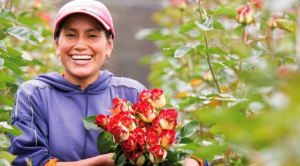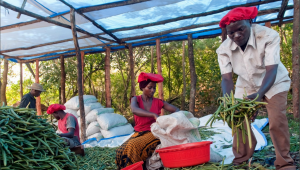
Slow flowers
Since the 1990s, the flower industry too has been globalized. In 2013 the Floriculture Sustainability Initiative (FSI) was set up with the goal that 90% of flowers traded on the international market would come from sustainable farms by 2020. The slow flower movement are tending towards an alternative approach; they are choosing to grow flowers organically and outdoors, and then using short supply chains to deliver them to their customers.








